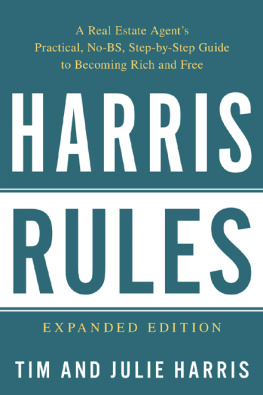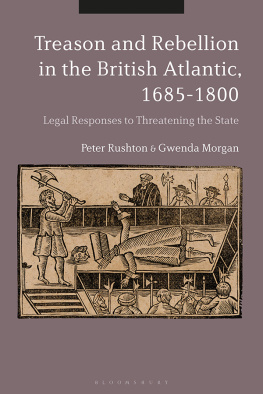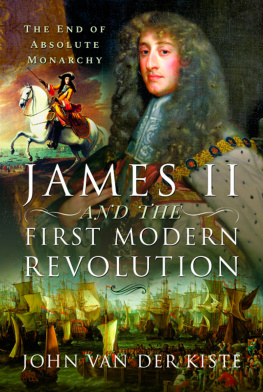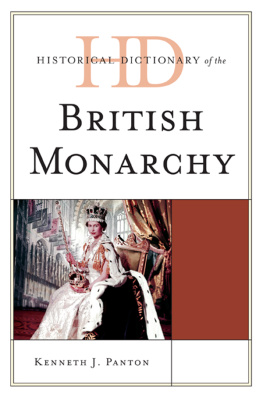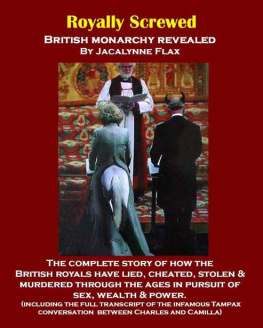Tim Harris - Revolution: The Great Crisis of the British Monarchy, 1685-1720
Here you can read online Tim Harris - Revolution: The Great Crisis of the British Monarchy, 1685-1720 full text of the book (entire story) in english for free. Download pdf and epub, get meaning, cover and reviews about this ebook. year: 2008, publisher: Penguin Books, genre: Politics. Description of the work, (preface) as well as reviews are available. Best literature library LitArk.com created for fans of good reading and offers a wide selection of genres:
Romance novel
Science fiction
Adventure
Detective
Science
History
Home and family
Prose
Art
Politics
Computer
Non-fiction
Religion
Business
Children
Humor
Choose a favorite category and find really read worthwhile books. Enjoy immersion in the world of imagination, feel the emotions of the characters or learn something new for yourself, make an fascinating discovery.
- Book:Revolution: The Great Crisis of the British Monarchy, 1685-1720
- Author:
- Publisher:Penguin Books
- Genre:
- Year:2008
- Rating:4 / 5
- Favourites:Add to favourites
- Your mark:
- 80
- 1
- 2
- 3
- 4
- 5
Revolution: The Great Crisis of the British Monarchy, 1685-1720: summary, description and annotation
We offer to read an annotation, description, summary or preface (depends on what the author of the book "Revolution: The Great Crisis of the British Monarchy, 1685-1720" wrote himself). If you haven't found the necessary information about the book — write in the comments, we will try to find it.
Tim Harris: author's other books
Who wrote Revolution: The Great Crisis of the British Monarchy, 1685-1720? Find out the surname, the name of the author of the book and a list of all author's works by series.
Revolution: The Great Crisis of the British Monarchy, 1685-1720 — read online for free the complete book (whole text) full work
Below is the text of the book, divided by pages. System saving the place of the last page read, allows you to conveniently read the book "Revolution: The Great Crisis of the British Monarchy, 1685-1720" online for free, without having to search again every time where you left off. Put a bookmark, and you can go to the page where you finished reading at any time.
Font size:
Interval:
Bookmark:
PENGUIN BOOKS
REVOLUTION
Tim Harris has spent much of his teaching life rethinking and re-imagining late Stuart Britain. His fascination with the growth of popular politics, mass journalism and crowds has been expressed in a number of groundbreaking books, including London Crowds in the Reign of Charles II and Politics under the Late Stuarts. He taught for some years at Emmanuel College, Cambridge, but has since 1986 taught at Brown University, Rhode Island, where he is now Munro-Goodwin-Wilkinson Professor in European History.
In 2005 he published the widely praised Restoration: Charles II and His Kingdoms, 16601685, which is a prelude to the current book. Restoration won the 2006 John Ben Snow Prize.
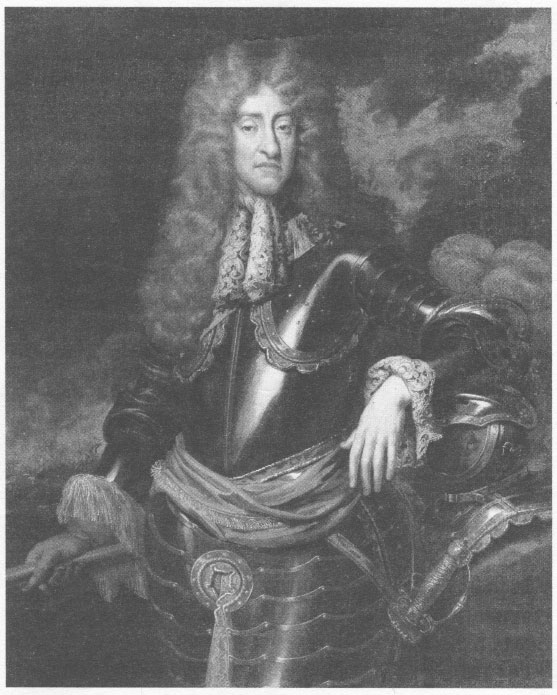
James II, by an unknown artist, c. 1690
PART ONE
It was on this occasion that the world stood astonished to see the Metamorphoses in a manner of a whole Kingdom; this Prince, who so little a while before had been persecuted, banished, and by the wishes of the people as well as the violent endeavours of the Parliament on the point of being disinherited to see (I say) this same Prince wellcom'd to the Throne with such universal acclamations of joy, such unexpressible testimonys of duty and affection from all ranks of people, was what history has no example of.
Life of James II, II, 2
When Charles II died on 6 February 1685, at the age of 54, the succession passed to his Catholic brother, the 51-year-old James, Duke of York, who succeeded as James II in England and Ireland and as James VII in Scotland. Despite the recovery of the crown's position over the previous four years, the royal administration remained extremely nervous about what might happen when James did eventually succeed his brother. After all the fuss that had been made during the Exclusion Crisis, when the Whigs had portrayed James as a lover of arbitrary power and predicted that a Catholic successor would inevitably be a threat to Protestant political and religious freedoms, how would people actually react when they faced the reality of a Catholic monarch on the throne? The Whig challenge might have been contained, but had it been defeated? What could be expected from those who had suffered during the years of Tory Reaction or who had been forced into political exile? Throughout the autumn of 1684 and early 1685, the government received reports that Scottish and English dissidents in the Low Countries, led by the Earl of Argyll and the Duke of Monmouth respectively, were contemplating launching a rebellion. And if Argyll and Monmouth were to invade, how much support might they be able to win among the British people? In England, the Whigs might have been removed from local office and the dissenters fined until they could no longer afford to attend their conventicles, but their hearts and minds had hardly been won over. In the Scottish south-west the radical Presbyterians, the Cameronian remnant or Society People, continued to hold their field conventicles and engage in acts of open defiance against the government. With regard to Ireland, the government could perhaps feel confident of the loyalty of the Catholic majority and even of the Protestants of the Established Church; they were less sure of the allegiance of the Protestant dissenters, especially the Scottish Presbyterians in Ulster, who maintained close links with their brethren in the Scottish south-west.
Those in authority certainly felt they could take no chances. When Charles II fell seriously ill on 2 February, the government took immediate security precautions, closing the ports, having suspicious persons arrested, and readying troops in various parts of the kingdom to suppress any disorder. A premature report of Charles II's death on 4 February prompted Sir Edward Philips, a deputy Lieutenant in Somerset, to call out the regiments of the county militia under his command to stop ill affected persons from attempting to disturb the legall succession of his Royall highnesse.
As it turned out, James's reign began better than anyone could have expected. There was no immediate challenge to the accession of a Catholic ruler, as had been feared; indeed, there is considerable evidence of popular support for the new monarch across all three of his kingdoms. Moreover, the parliaments that met in Scotland and England that spring proved not only overwhelmingly loyalist bodies but even zealous in their loyalism. There were certainly those who were far from happy at the prospect of living under a Catholic king, but the disaffected were a small minority who, after the Tory Reaction of the final years of Charles II's reign, were in no position to mount an effective challenge to the government. When the rebellions of Argyll and Monmouth came in the late spring and early summer of 1685, they both failed miserably for lack of support.
However, the support James enjoyed at the time of his accession was, in essence, conditional, although loyalists would not have seen it this way themselves at the time. The vast majority of those who backed the new monarch and rallied behind him in the face of the residual challenge by radicals north and south of the border did so because James promised he would observe the rule of law and uphold the existing establishment in the Church. When it began to become clear that he was not going to keep his promises, the enthusiasm of those who had welcomed his accession soon began to cool. Sixteen eighty-five might have started better for the King than he could have expected; it finished with him already having begun to turn the natural supporters of the late-Stuart monarchy against him. This chapter will analyse the climate of opinion in England, Scotland and Ireland at the time of James II's accession in order to assess the extent of popular support for the King when he came to the throne. The following chapter will take the story through 1685, looking at the meetings of the Scottish and English parliaments, the rebellions of Argyll and Monmouth (and the reactions to them), and the beginnings of the growth of loyalist disaffection in England towards the end of 1685.
FAR FROM BEING A MAN FOR ARBITRARY POWER
Immediately upon the death of his brother on 6 February, James delivered an impromptu speech to his privy council in an attempt to reassure those at the centre of power they had nothing to fear from his accession. Deeply upset by his brother's demise and with tears still in his eyes, he resolutely promised that he would preserve this Government both in Church and State as it now by Law Establish'd. Far from being a Man for Arbitrary Power, he said, he knew the Laws of England were sufficient to make the King as Great a
The official version of the speech was widely disseminated. It was published separately and printed in the official government newspaper, the London Gazette. The leading Tory journalist and Charles II's licenser of the press Roger L'Estrange reported the speech in his bi-weekly Observator, and remarked that here was as much of a security as any Good Christian, or Subject could pray for. And if anyone had still chanced to miss what the King had said, James was soon to reiterate his promises to protect the Established Church and the rights of his subjects at the openings of both the Scottish and English parliaments.
Arrangements were quickly made for proclaiming James king, and a proclamation was issued for the continuance in office of all those who held positions at the death of Charles II, in order to ensure that there was noe disturbance among his Majesties Subjects and that peace [might] be continued.
Next pageFont size:
Interval:
Bookmark:
Similar books «Revolution: The Great Crisis of the British Monarchy, 1685-1720»
Look at similar books to Revolution: The Great Crisis of the British Monarchy, 1685-1720. We have selected literature similar in name and meaning in the hope of providing readers with more options to find new, interesting, not yet read works.
Discussion, reviews of the book Revolution: The Great Crisis of the British Monarchy, 1685-1720 and just readers' own opinions. Leave your comments, write what you think about the work, its meaning or the main characters. Specify what exactly you liked and what you didn't like, and why you think so.


